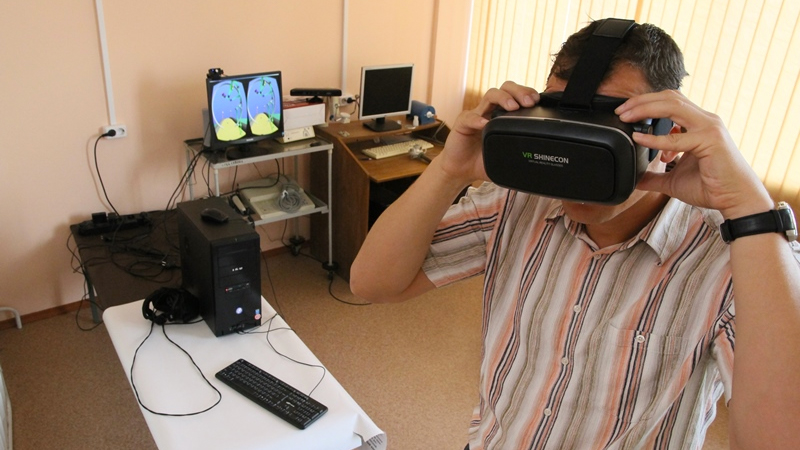Virtual reality could help to diagnose Parkinson's Disease
Spotting the early stages of neurodegenerative diseases

Virtual reality is often touted as the future of entertainment, but a team of medical researchers believe that it could be the future of diagnosing neurodegenerative diseases, like multiple sclerosis and Parkinson's disease, too.
Scientists from Tomsk Polytechnic University and the Siberian State Medical University, in Russia, are working on building a diagnosis system for these diseases using virtual reality.
"Our sense of balance and our movement are responsibilities of a number of systems," explained Ivan Tolmacho, one of the team working on the project. "All these coordinated systems operate automatically. They falter if a person develops, for example, Parkinson's disease."
Currently, early diagnosis of these conditions is done using visual assessment in most parts of Russia. The brain scanning technology necessary to confirm the diagnosis is only available in a handful of cities. The VR system being built would be cheap and easy to roll out across the country.
Losing Balance
In their current prototype, a person is immersed in a virtual environment and asked to carry out some basic functional tests. The researchers can then change the parameters of the environment and record changes in how the person moves.
A healthy person can quickly adapt to these changes, but a person suffering from a neurodegenerative disorder can't adapt so quickly and loses balance. In testing on about 50 volunteers, the researchers were able to tell how much a person differs from a "healthy" baseline - though they warn that this isn't yet sufficient to make a diagnosis.
Getting it to a point where it can, the team says, will take about another year. Then the system will need to go through clinical trials and certification before certification. But the group has big ambitions for its creation.
Get daily insight, inspiration and deals in your inbox
Sign up for breaking news, reviews, opinion, top tech deals, and more.
Ivan Tolmachov, another of the researchers, said: "In the future the system will be used not only for disease diagnosis but for patient rehabilitation as well."
- Duncan Geere is TechRadar's science writer. Every day he finds the most interesting science news and explains why you should care. You can read more of his stories here, and you can find him on Twitter under the handle @duncangeere.
Most Popular

